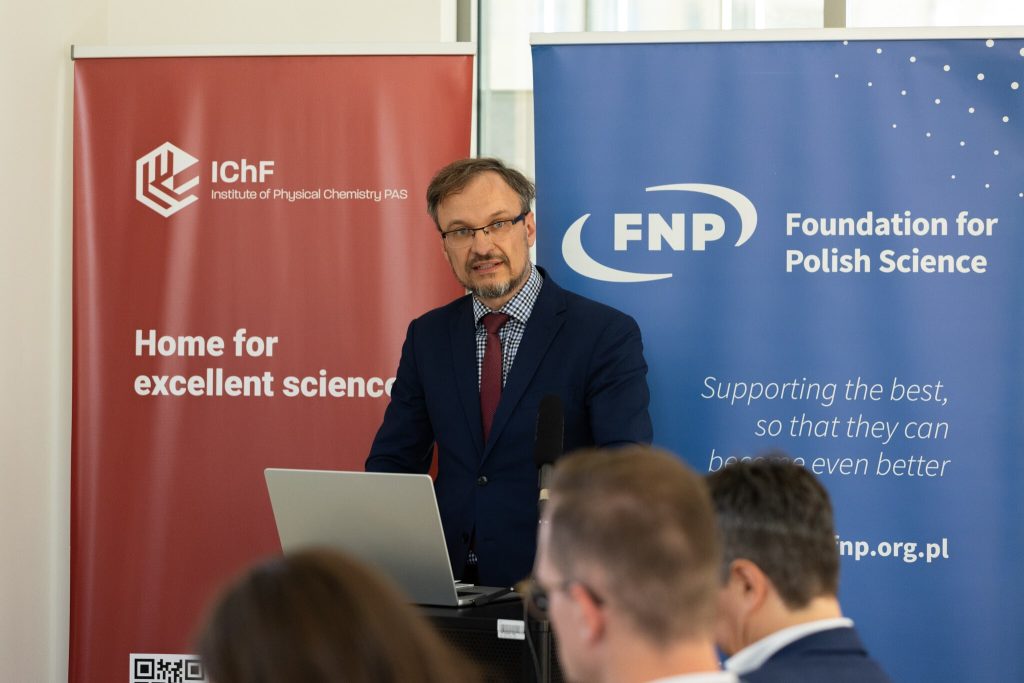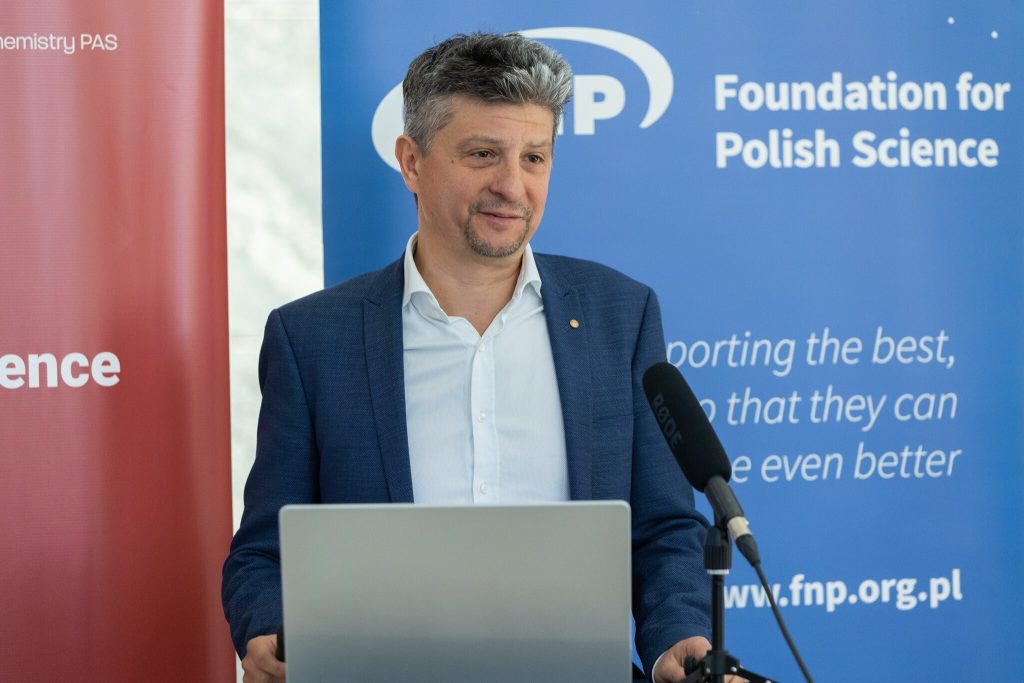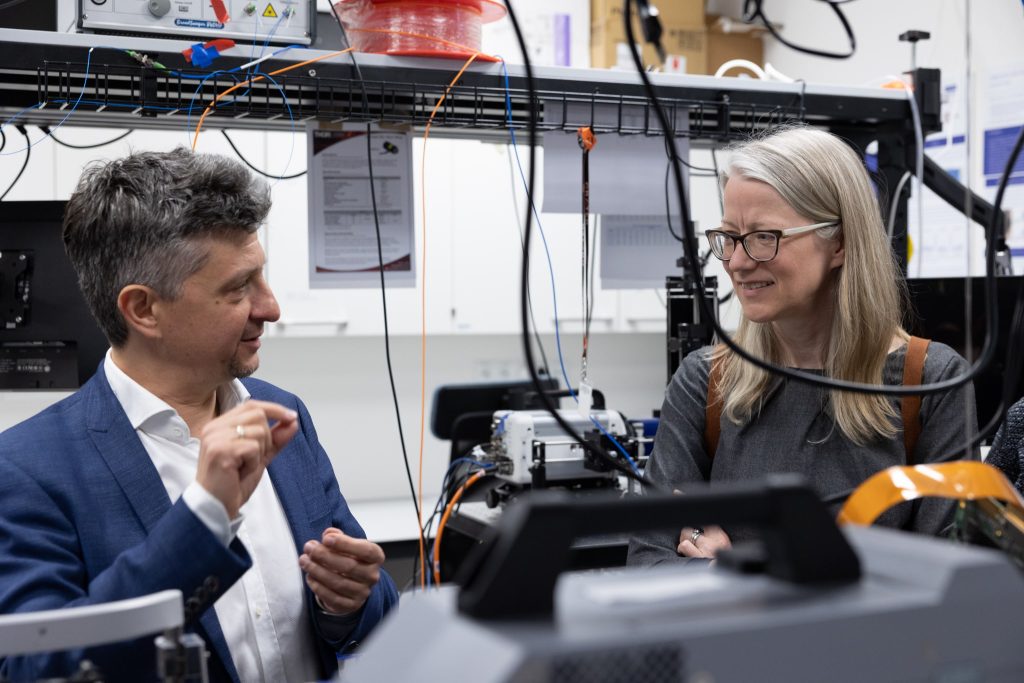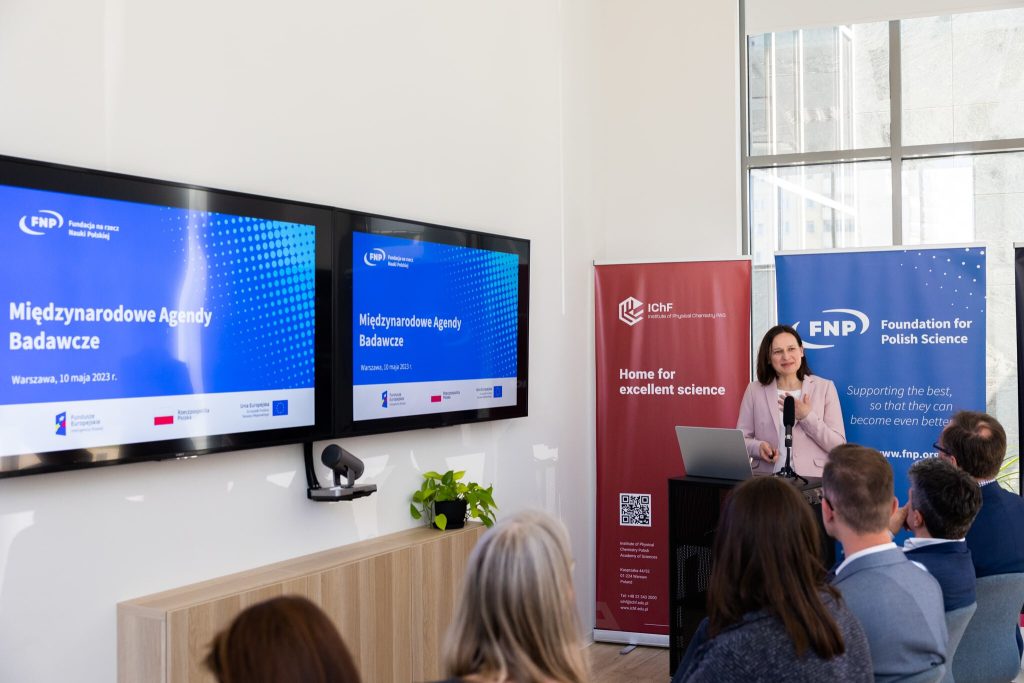An interdisciplinary team of world-class scientists at the International Centre for Translational Eye Research (ICTER), operating at the Institute of Physical Chemistry of the Polish Academy of Sciences (IPC PAS) in Warsaw, is working on technologies that will revolutionize the diagnosis and treatment of the most challenging eye diseases. On May 10, 2023, journalists were able to learn about the centre’s achievements and talk with researchers. Ambassador of the United Kingdom of Great Britain and Northern Ireland to Poland Anna Clunes was the event’s guest of honor.
The International Centre for Translational Eye Research (ICTER) was established thanks to European funds from the Intelligent Development Program (POIR) awarded by the Foundation for Polish Science (FNP) under the International Research Agendas (MAB) program. The research carried out in MABs is interdisciplinary in nature and the results will enable the development of new technologies to serve society in the future.
– “ICTER is one of 14 International Research Agendas. It is the only such program in Poland, which allows the creation of new research units led by outstanding scientists” – explained FNP Vice President Dr. Tomasz Perkowski, adding: – “The aim of the International Research Agendas program is to strengthen the quality of science in Poland, develop international cooperation and attract talent, and support the creation of innovative, internationally competitive solutions in a given field.”

Researchers at the centre are working on breakthrough technologies for imaging eye processes and facilitating procedures to save or restore vision. Research is interdisciplinary in nature and involves areas such as biology, chemistry, physics and computer science. At ICTER, one-third of the scientific staff are foreigners. – “For centuries, treating blindness was considered a miracle. Now there are emerging opportunities to treat even people who have been blind since birth. This shows how far we can go in treating eye diseases” – said Prof. Maciej Wojtkowski, director of the ICTER – IPC PAS.
Some of the technologies developed at the ICTER are at the implementation stage. One of them is an innovative method that allows imaging of the retina using so-called fluorescence with two-photon excitation. It allows, on the smallest, chemical scale, to check whether the cells responsible for the vision process are working properly. Another method is optoretinography, which allows precise measurement of the response of photoreceptors present in the retina to light. Both techniques can be used to diagnose visual disorders, but they also make it possible to analyze whether implemented therapies are having the intended effect. In the case of optoretinography, the technique requires previously unimaginable precision – measuring devices must detect the elongation of light-sensitive eye cells by 1 nanometer, despite the movement of the entire organ.

ICTER collaborates with the world’s leading eye research institutes, including University College London – the centre’s strategic partner – as well as London’s Moorfields Eye Hospital and the University of California, Irvine. – “International scientific collaboration is key to advancing science and innovation, as well as to solving global health, climate or security challenges. Scientific cooperation across borders allows for the expansion of knowledge by additional elements, exchange of experience and competencies, access to research infrastructure and technology transfer” – said Anna Clunes, Ambassador of the United Kingdom of Great Britain and Northern Ireland to Poland, adding: – “The UK is an active partner of Poland in the field of scientific research. I am pleased that British centres and ICTER maintain close cooperation in research on the eye and its diseases. This is an important area for improving the quality of life for millions of people around the world. I hope that this cooperation will grow and benefit all countries.”

The support of the Foundation for Polish Science in the implementation of the International Research Agendas program is not only an opportunity for the development of domestic science – in perspective, it means an increase in innovation in the Polish economy. Technologies being developed and tested in MABs today, in a few years’ time, may have a significant impact on various branches of our economy, and this will translate into concrete benefits for society. In the case of ICTER, the new devices will be used to test innovative therapies for, among others, patients with diabetic retinopathy, which is the first cause of vision loss in people of working age, or with age-related macular degeneration (AMD), the most common cause of vision loss in people over 50 in developed countries.

***
The Foundation for Polish Science has existed since 1991 and is an independent, self-funded, non-profit, non-governmental institution with a mission to support science. It is the largest non-budgetary source of science funding in Poland. FNP’s statutory goals include supporting outstanding scientists and research teams and working to transfer scientific achievements to economic practice. The Foundation pursues them by awarding individual prizes and scholarships for scientists, granting subsidies for the implementation of scientific achievements into economic practice, other forms of support for important undertakings serving science (such as: publishing programs, conferences). The Foundation is also committed to supporting international scientific cooperation and enhancing the scientific independence of the younger generation of scientists.
***
Pictures from the event: Nel Gwiazdowska
PR coverage of the media conference: Pełka and Partners agency
***
Press contact:
Dominika Wojtysiak-Łańska, Foundation for Polish Science: tel. 698 931 944, wojtysiak@fnp.org.pl
ICTER Communications and PR Division: Anna Przybyło-Józefowicz, aprzybylo-jozefowicz@ichf.edu.pl


